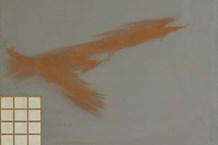In line with recent promises from Beijing, in June a HK government paper proposed a three-step plan to phase out the local trade in modern ivory and impose tougher penalties for illegal trading.
Step one will see a ban on imports and the re-exporting of trophies and modern carvings; step two, a ban on the trade in ivory acquired before 1975, and step three, the total outlawing of all domestic sales including those obtained before 1990.
There will be an exception for worked antiques, although the policy document, titled Proposed Plan for Phasing out the Local Trade in Elephant Ivory, does not provide a definition of either ‘worked’ or ‘antiques’.
A cover for illegal trade?
Currently, close to 400 licensed sellers are permitted to trade modern ivory in Hong Kong providing it was worked before the 1989 CITES treaty.
In theory, the unauthorised import and export of ivory items is banned (purchases must remain inside HK) but it has long been alleged that the legal trade acts as a cover for the sale of illegal ghost ivory.
As of January, 77 tonnes of legal ivory remained among 370 licence holders.
Despite criticism of the long grace period, the HK government says it has allowed current licences to expire.




